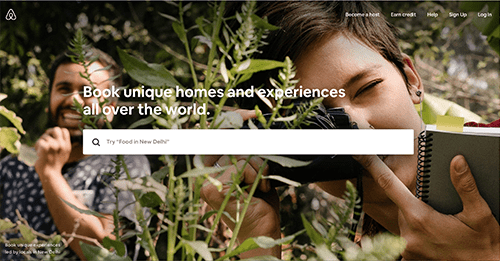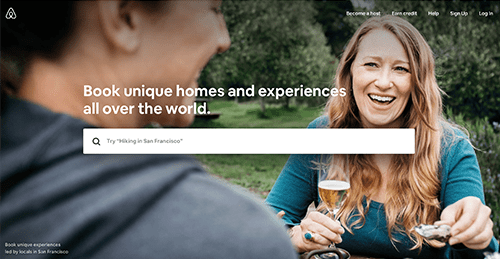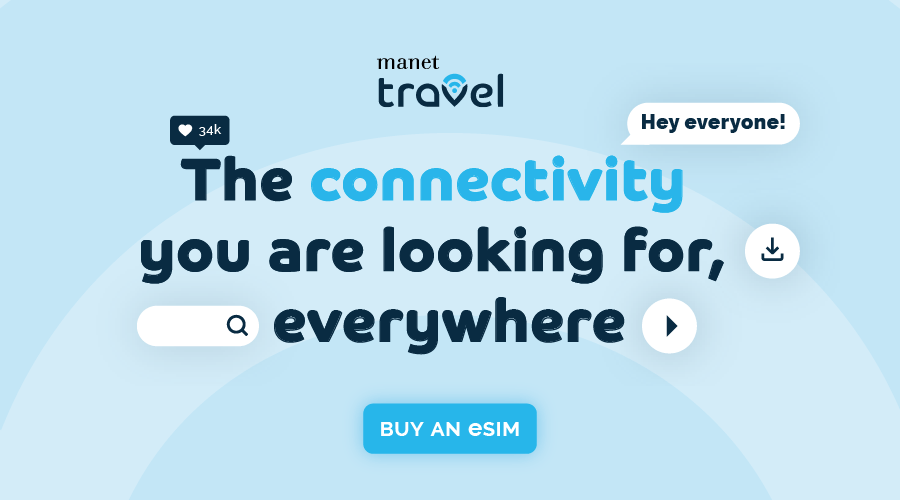Do more than just “visit”. Instead, immerse yourself into a new culture.
Does this sound familiar?
It’s a promise that many experiential travel companies, blogs, groups and guides promise. Because there’s a real demand for experiential travel — and it’s not just limited to third-party tour operators.
In fact, today’s hotels, B&Bs and even hostels compete on the experience they purport to offer guests far more than price. People don’t count themselves as “tourists” anymore but identify as “travelers”, “explorers” and, in some cases, “wanderers” and “digital nomads”.
In other words, there’s a shift from mere accommodation in the hospitality and travel niche towards experience as a major hallmark of a “successful” or “fulfilling” or even “memorable” trip.
And this shift has triggered a new competitive landscape for travel companies, hotels, B&Bs, hostels and even specialty cultural accommodations and lodging. So, is this just a new-fangled label or is there something deeper behind the hunger for experiential travel?
Why Offering an “Experience” Matters More than Price
If you’re reading this now and you were alive in the 90s (or even the early 2000s), you’ll remember that your travel decisions (or your family’s travel decisions) were based on the purse-strings.
Travel budgeting was a real thing — and it’s not that this concern has been thrown out the window. In fact, if the rise in sites that show consumers how to “hack” travel points on credit cards to budget travel around the world are any indication, pricing on accommodations still matters.
It’s just not the only thing that matters. Nor is it the most significant. In fact, even “budget” travelers are looking for something greater when they travel: the promise of an experience. There are very specific factors that have led to competition occurring on an entirely new playing field. Let’s take a look.
Enter the “Millennials”
There’s a new demographic in town and it’s beginning to enter into its peak earning years. That would be the generational group known as the “millennials”. And, in case you’ve missed the memo, they’re in the market with some serious buying power.
While it’s certainly true that “boomers are flocking to adventure tours” and that boomers’ tastes have taken a turn towards “non-traditional…bucket-list destinations…” with a focus on “exploring, learning about the history of a city, learning about the art”, millennials are parlaying their considerable influence into a taste for the exclusive, alongside the experiential.
While boomers are content to backpack and make the most of the wealth they’ve built or the time they have left, millennials are, increasingly becoming the generation of affluence.
Given that almost a quarter of U.S. adults making a household income of more then $500,000 are millennials, it might come as no surprise that, according to the United Nations, “200,000 million millennial tourists generate more than $180 billion in annual tourism revenue, an increase of nearly 30% since 2007” (Forbes).
So what are millennials looking for? That would be a preference for “traveling with their tribes” and so requiring larger or luxury accommodations, customization of itineraries, getting immersed in local culture and having access to a local contact or concierge to help plan activities because, “the travel is as much about the experience as it is the residence or accommodations.”
The rise of OTAs
In its infancy, OTAs or “online travel agents” — which were sites like Travelocity, Hotwire, Trivago and Priceline — allowed consumers to book tickets for several flights, comparing hotels, flights and rentals based on a variety of factors like price, location, connection duration, airline carrier or rental company.
Today, these predecessors have created a precedent and a shift in consumer behavior: Hardly anyone books a flight, accommodations or even a tour without first doing their “travel research”.
In fact, according to Phocuswright, “Viator and Expedia Local Expert” are the two most commonly used online travel agents” and “55% of leisure travelers…put a lot of thought into planning these trips”. (Google/Phocuswright, 2016)
OTAs suddenly made “price” levers a standard and accessible feature. As the novelty wore off and the travel market began operating as a staple in this manner, the competition shifted focus to something beyond just “price” — experience.
It was now no longer enough for hotels or even B&Bs to offer rooms based on price. To go above and beyond and retain a competitive edge, they now began to offer experiences. And, as will be seen, this “experiential” dimension is one that OTAs themselves started to offer as a major initiative (and opportunity).
A tale of social media and influencer marketing
Speaking of travel research, here are a few revelatory statistics that underscore consumer behavior at large:
- 70% of travelers with smartphones have done travel research on their smartphone. (Google, 2016)
- 1 in 2 traveler journeys start on mobile (Booking.com, 2016)
- 50% of millennial travelers have discovered a new travel company while researching on mobile. (Google, 2016)
- 30% of mobile searches are related to a location. (Google, 2016)
The shift in consumer behavior to a “mobile-first” approach has a lot to thank the social media movement for. Digital proliferation, in other words, hasn’t occurred in silos. At this point, mobile-first behavior for search and purchase also means that individuals are spending more time than ever on social media platforms such as Instagram and Facebook.
These are also the platforms where major travel brands like Contiki as well as more boutique accommodations, luxury tours and more “niche” travel brands are serving up inspirational travel content for consumer consumption.

It’s not uncommon for users to see a location, accommodation or experience on Instagram, search through mobile and book online, expecting to book all parts of their trip at once and choosing a spot based on the experience it promises.
Experiencing Expedia & AirBnB
Experience tied into travel is what big name travel spaces online like Expedia and even AirBnB are now offering. Much of this has to do with the ways we search, our digital behaviour and the way marketing has changed in the last 10 years.
But it also has to do with a real demand that consumers have for a more all-encompassing, memorable and “authentic” experience.
Let’s take a look.
On the AirBnB website, the messaging makes the company’s priorities (and offerings) plenty clear:

“Book unique homes and experiences all over the world,” says AirBnB’s eye-catching main headline.
Next, we see that there’s a pre-populated and “suggested” search query already in the search bar: “Try ‘Hiking in San Francisco’,” it says. This, in other words, is a popular experience around which accommodations can be booked.

The suggested search also gives a more directed suggestion — “Homes for families in Shanghai” — but, again, the very specific qualifier here is “homes”, which suggests an experience of travel rather than simply a size of accommodation. It seems to tell the user they can expect “all the qualities of home” while traveling.

In 2016, AirBnB announced the addition of a new travel product to its traditional offerings, which might help to explain its shift in branding: “Trips”, which later evolved to “Experiences” in 2017 was, according to a Morgan Stanley survey, a response to levels of adoption tapering off for the app.
However, AirBnB’s $5 million investment into “Experiences” is, according to founder Brian Chesky, “a key initiative” focused on “evolving his company from a marketplace for renting other people’s homes into a multi-dimensional travel company” (Fast Company).
Experiences, essentially, is all about having AirBnB hosts providing activities that are local, alongside opening up their homes. These can be multi-day excursions like concerts or tours booked based on interests like food, fashion and music.
Expedia does something very similar. While it’s not an app for booking home rentals, it has spent a pretty marketing penny branding itself as a one-stop (online) shop for booking hotel accommodations, tours, car rentals, and local activities.
Just take a look at this “London Eye Experience Tickets” built right into the booking section for the site, alongside reviews on the experience “related attractions” suggestions.
Behind the obvious opportunity for these companies to take advantage of the shift in travel trends, there is something else going on here. A change in consumer behaviour, right now, is being more influenced than ever before by how we interact with the web at large, as consumers.
Besides social media hooking into every aspect of our lives, there are marketing-driven strategies that travel companies are using. Now, experiential travel is an invitation for consumers to “self-select” the kind of experience they want, based on their preferences or their “travel type”, as Contiki’s recent website revamp shows.
And then, there’s the question of search. 50% of search queries are four words or longer. (Ko Marketing, 2016)
Because keywords have become so competitive, there is a greater need for specificity. This means that there’s a rise in something known as “long tail keywords”, which are essentially phrases that are either questions or include four or more words.
Remember the AirBnB search suggestion? That’s a long tail keyword and it’s how people are searching more and more.
Why (and How) Is “Experience” More Alluring for Travel?
Reflecting on travel is always a very personal thing and, more and more, travelers express a desire to have an experience change them when they return.
In other words, they’re not looking to just skim the surface. They’re looking to get involved locally, meet people, blend in, partake and make memories. There is even a level of cultural preservation, awareness and sustainable travel inherent in this ethic of traveling.
Hashtag “Inspo”
First off, social media platforms and the rise of influencer marketing give would-be travelers a sense of being there without actually going. But this is precisely what creates a sense of inspiration and desire to adventure similarly and experience for oneself.
“#travelinspo” is just one of those popular and “trending” hashtags on social media that users can search to find experiences that suit their desires for travel.
End-to-end service
Expedia and AirBnB’s “Experiences” prove that there is a real focus by travel companies, apps and even OTAs to provide a real “end-to-end” service. Blame it on Amazon and the rise of e-commerce, online shopping, that promises consumers an “end-to-end shopping experience”.
Travel is headed the same way.
The psychology behind experiential travel
There is something very simple operating in favor of experiential travel: Emotion.
Expectations for travel have shifted, along with the way they search, buy, research and make decisions. All these changes have come together to craft an atmosphere where emotional buying is easier than ever.
While a traveler can be more aware and informed than ever before, this awareness is simply a means of persuasion that occurs through various channels. Travel companies now have the opportunity to give consumers a more memorable trip than ever before by integrating all points of their travel into an experience.
In some ways, this is what travel is supposed to be all about: instilling a sense of, “I want to go there too…” in every would-be traveler.
So, what are some popular types of experiences? While they certainly are as diverse and wide as a consumer’s interests and a location’s offerings, common experience holidays can include:
- Winery tours
- Food tours under one cuisine like, “A Taste of Asia in San Francisco”
- 4-day nature/camping experiences in the Grand Canyon
- Multi-day festivals and concerts like Coachella
- Political and cultural parades and rallies
- Rural homestays on coffee plantations
- Volunteer work abroad
- Cyclists who travel across multiple countries
- Adventure tours like Karmayatri in Northern India
However, the above experiences represent only a small sample of all possible expriences offered today on the market by accommodation facilities and the list is constantly growing!







